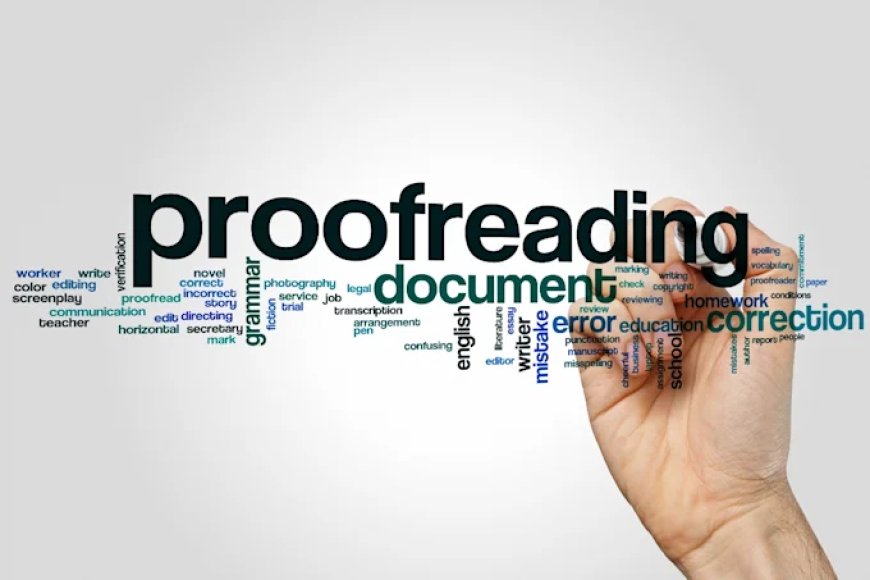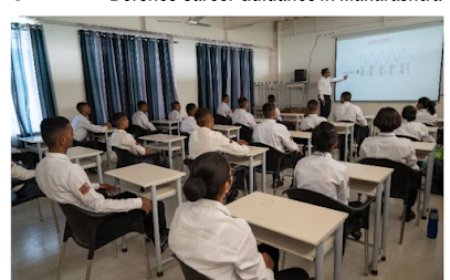The Importance Of Proofreading And Editing In Securing Higher Dissertation Grades
Proofreading And Editing

Writing a dissertation is a long, detail-heavy process where every word, argument, and structure brings weight to the project. But even the most thoroughly researched work can fall short if it is filled with errors or lacks clarity. Many students order dissertation help online to ensure a perfect submission of the project, but this is not the only option. You can also achieve this perfection through proofreading and editing, as they play a decisive role in enhancing the quality of your project. They are not just about fixing typos or grammar mistakes, they ensure your ideas are presented clearly, logically, and professionally.
The difference between an average and a high distinction dissertation is the difference in perfection in every detail. When examiners assess a dissertation, they expect precision, coherence, and academic polish. You can buy dissertation online from professionals to obtain all these elements. If not, then editing and proofreading is your perfect chance. It helps eliminate distracting errors and improves flow while making it easier for the reader to understand your arguments. The following post explores the importance of proofreading and editing, along with their effective usage.
Importance Of Proofreading In Securing Higher Dissertation Grades And The Effective Ways To Do It
Strong editing and proofreading demonstrate you have taken the final as well as the most crucial step to elevate your research from draft to distinction. The importance of proofreading in academic writing can be understood from the fact that it acts as the last line of defence before submission. It ensures that your dissertation is free from typographical errors, grammar mistakes, and inconsistencies in formatting or citation. Even minor spelling errors or misplaced punctuation can weaken the credibility of your work. Proofreading polishes the final draft, making your writing appear more intelligent, articulate, and academic. Most importantly, it allows your content to shine without being overshadowed by careless mistakes.
Proper proofreading also shows attention to detail, which is a quality that examiners highly appreciate. According to a survey, dissertations with minimal presence of errors are more likely to receive higher scores, even when the core arguments are similar to those in lower-graded submissions. That is how significant clean, error-free writing can be. The effective ways through which you can proofread your dissertation thoroughly are mentioned below:
Step Away Before Proofreading
Dont hop onto the stage of proofreading, soon after you are done with writing. If you have enough time left before the submission deadline, then leave your work for a day or two after finishing. However, if you are short on time, then at least take a break of one to 2 hours. It is because a fresh perspective helps spot errors your brain may have ignored earlier due to familiarity. Make no changes to what you read; instead, concentrate on the organisation and flow of the writing (Hardwood, 2025,).
Read Aloud Slowly
This forces you to notice awkward phrasing, repeated words, or unnatural sentence structures that silent reading might overlook. It is because when you read and hear something, you can easily identify the mistake.
Use Digital Tools Cautiously
Tool are helpful for sure, but they come with their weaknesses. Tools like Grammarly can catch obvious issues, but dont rely solely on them. They often miss context-specific problems or suggest incorrect changes.
Print Your Work
Reading a printed version can highlight layout issues, missing headings, and small inconsistencies that are harder to catch on screen.
Check Formatting And Referencing
Inaccurate citations, inconsistent fonts, and incorrect margins can all result in academic penalties, which can directly affect your dissertations distinction. Follow your institutions style guide to the letter.
Have Someone Else Review It
A fresh pair of eyes can detect overlooked errors and always prove to be helpful. Peer feedback is often more objective than self-checking.
Importance Of Editing In Securing Higher Dissertation Grades And The Effective Ways To Do It
Editing goes far deeper than proofreading. It is about improving the overall structure, clarity, and academic tone of your dissertation. While proofreading fixes surface-level issues, editing reshapes and refines the content itself. It ensures your argument is logically structured, your paragraphs are coherent, and your writing aligns with academic standards. Even the most insightful ideas can appear disorganised or hard to follow without proper editing.
So, how editing improves dissertation quality? Well! Whether it is structure or content, editing uplifts the quality of the whole project. The dissertation projects, which are revised for structure, flow, and clarity, come across better in all marking criteria than those only corrected for grammar. This means editing can significantly enhance the persuasive power and academic depth of your work, which are essential to securing top marks. In editing your own work, different approaches can be effective (Gastel, 2015,). Some of the effective ways to edit your dissertation with precision and purpose:
Review Your Structure And Argument Flow
Make sure your introduction clearly outlines the research, each chapter transitions smoothly, and your conclusion ties everything together with impact.
Refine Paragraph Coherence
Each paragraph should express one idea, start with a clear topic sentence, and logically lead to the next. It is because disjointed ideas confuse the reader and weaken your argument.
Remove Redundancy And Wordiness
Eliminate phrases that dont add value. Clarity and precision are respected in academic writing.
Check For Consistency In Tone And Style
Ensure the academic tone remains consistent throughout. Avoid abrupt shifts in voice, informal language, or excessive use of passive construction.
Evaluate Your Evidence And Citations
Are your claims well-supported? Make sure every point is backed with appropriate sources, and that your citations are accurate and complete.
Use Editing Passes For Specific Goals
Do one pass for structure, another for clarity, and a final one for tone and citations. Editing in layers is more effective than trying to fix everything at once.
Conclusion
Proofreading and editing are not just academic formalities; rather, they are the final, essential stages that transform a good dissertation into a remarkable one. They allow your ideas to stand strong, unclouded by mistakes or poor structure. Skipping these steps can cost you valuable marks, no matter how insightful your research may be. Every revision adds value, whether it is spotting a hidden typo or restructuring a weak argument. Investing time in proofreading and editing is investing in your academic success.




































